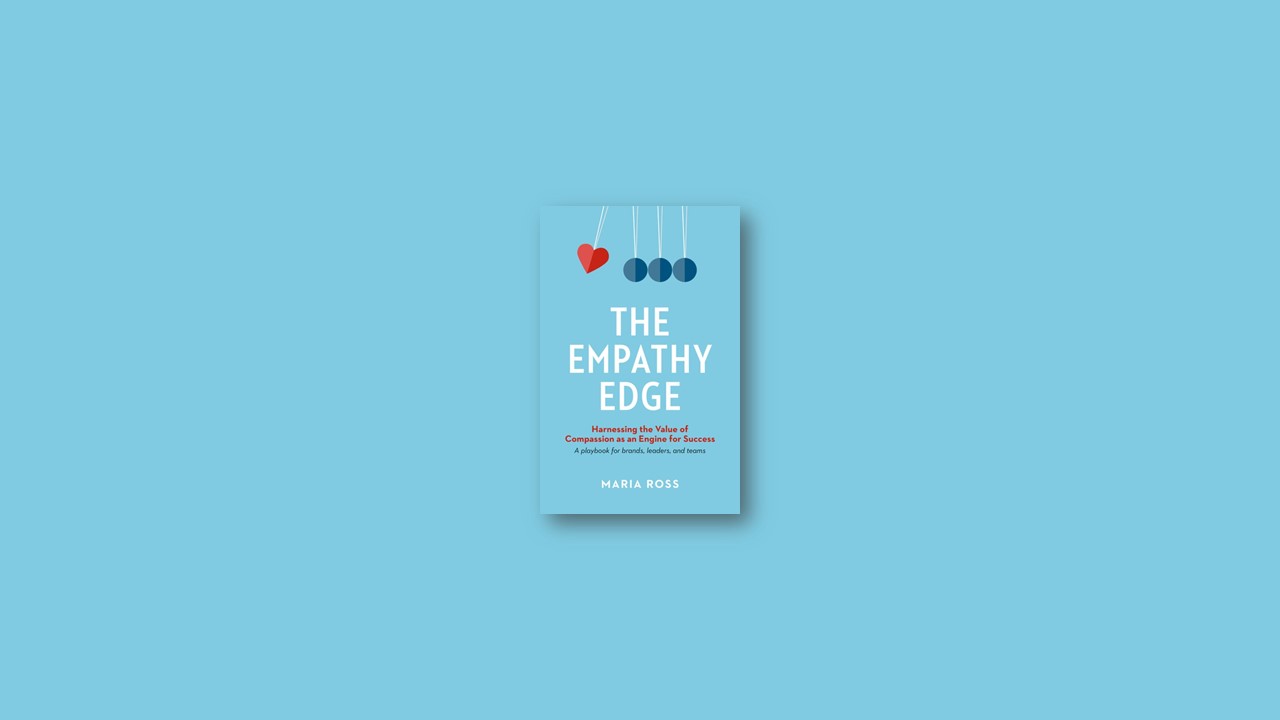Empathy Explored
Empathy is about putting yourself in someone else’s shoes and understanding their emotional state because you have experienced something similar, or can imagine what life is like for them. It differs from sympathy, which is an acknowledgment of someone’s emotional hardship, and compassion, which is empathy in action.
Emotional empathy means you feel how the other person feels, full stop. Cognitive empathy means you understand how another person sees the world.
Being empathetic doesn’t negate your ability to make a rational, reasoned business decision. Being an empathetic organization or leader does not mean caving to demands. Empathy is a mindset that guides the interaction and ultimate action or policy, rather than blind acquiescence. Being an empathetic organization does not mean accepting a weak place in the market. Yes, you can be empathetic and competitive.
The Business Advantages of Empathy
Empathy has been shown to have a direct impact on everything from customer loyalty to innovation to profits. Here are some of the proven benefits.
- Empathy spurs innovation: When you understand your customers, you can keep pace with changing needs and desires. Google’s Project Aristotle found that their most innovative and profitable ideas came from teams leading with soft skills, such as empathy.
- Empathy aligns you with customer wants and needs: The more in tune you are with your customers, the faster you can deliver best-fit products or services before your competitors catch on. In order to know what customers desire, you must see things from their perspective. Building an ideal customer profile will help you know what their life is like. Steve Jobs, for instance, focused on understanding a customer so well that Apple’s product designers knew what the customer wanted before they did.
- Empathy improves employee performance: Employees with more empathy and collaboration skills can often outperform and advance faster than those with purely the technical skills to succeed. Google’s Project Oxygen found that having soft skills aided in team members’ individual successes.
- Empathetic brands—and workplaces—appeal to millennials and Gen Z: As professionals, they are among the most diverse generations in the workforce and seek to leverage diverse perspectives to solve tough business challenges. They stick with employers who embrace new perspectives and value their points of view. As consumers, they’re loyal to companies and brands that care and make a difference.
- Empathy drives sales, growth, and market performance: The best and most progressive corporations have begun to adopt and employ compassionate business tactics, which have improved their standing in the market. Brighton Jones adopted this philosophy, and it’s now one of the leaders in the wealth management industry.
The Empathy Veneer
Today’s brand-savvy customers can spot fake empathy a mile off, and that’s where they’ll stay—far away from your business. The repercussions of fake empathy can be disastrous.
To truly fulfill any brand promise, including being empathetic, an organization must walk its talk, both internally and externally. If a company wants to build a brand that is seen as empathetic, but it focuses solely on good press or optics and refuses to commit to real action, its claims will soon be proven false.
It’s one thing to be understanding and see things from another’s perspective when the company is doing well. But a company with an empathy veneer won’t pass the test in the face of employee conflict, system collapse, or the loss of a huge client. To ensure your organization is infusing empathy in a holistic way, ask yourself:
- Are we aligned on mission and values?
- What internal policies or practices are in place to foster empathy?
- Are we building a safe and trusting environment?
- Are we “hiring right”?
- Do we implement proactive and flexible customer service policies?
4 Benefits of Empathetic Leaders
Leaders at every level can propel an organization and brand to become more empathetic. But being an empathetic leader also offers numerous benefits for the individual.
Empathy can be a catalyst for entrepreneurship: Some businesses are founded by a single person who’s had a transformative experience; that person’s drive to help the world fuels the business. Other businesses are created by a visionary who sees pain or suffering and reacts to it by creating a company that facilitates action. Joy McBrien created Fair Anita as a way to give women a safe space to talk about their experiences while supporting them in selling their crafts in the marketplace.
- Empathetic leaders engender loyalty: Leaders who display genuine empathy can put their teams at ease. Leaders who take the time to get to know their employees and customers, see things from their perspectives, and act accordingly are far better poised to achieve their own goals.
- Empathetic leaders can make good decisions: They collect information from various perspectives, consider their options, and act decisively. They are able to see the big picture from multiple angles and make critical decisions from an informed perspective.
- Empathetic leaders are agile and connected: They are constantly attuned to the needs of their teams as well as the customers they serve, which equips them to react better and faster to make those relationships more productive. They can meet people where they are, motivate them based on individual preferences, and consider various viewpoints when making decisions.
- Empathetic leaders are adaptable: Being an empathetic leader can make you more open to changing customer needs and enable you to adapt with more confidence. When you create a healthy dialogue—whether with your own internal team or your external stakeholders—new ideas can take root. You get continuous feedback and input. You are able to adjust your actions and ensure that your products change and grow to meet new customer needs
Cultivating An Empathetic Reputation
Here are eight strategies to help you engage, connect with, and delight your customers on a regular basis, all while serving something more significant than your bottom line.
- Align on mission: Your mission should not simply be a trite platitude. It needs to be crafted in such a way that it informs every action that employees take on a daily basis. It’s equally important to make sure your mission aligns with your customer’s values. To build a truly empathetic brand, you must respect how your customers see the world.
- Speak your customer’s language: Choosing the right words is the start of the empathetic brand conversation. Think about the most important and resonant words for your audience. Which words will make them feel alienated or condescended to? Which will make them feel valued, heard, and understood? What is the voice inside their heads saying?
- Hire people who are passionate about customers: While it’s true that every employee should embrace and reflect empathy, the brand lives in the actions of the people who represent the company and help end-consumers get what they need. Your people are your most important brand assets, and that means hiring the right brand ambassadors, people who can take the right actions and deliver the promised, expected experience.
- Implement the right customer service policies: Today’s technology and emphasis on transparency mean front-line employees are now closer to the customer than ever before. It also means these same employees should have the authority to address problems on the spot, based on each unique circumstance.
- Accept feedback as a gift: Don’t fear feedback of any kind. Use customer feedback, even the most negative stuff, as a catalyst for change.
- Offer a personal touch: Whether your company makes $100,000 or $1 billion, there are countless opportunities to offer your customers a personal touch and make them feel understood and valued.
- Do good: Customer loyalty swells when an organization shows empathy for the larger community and world. Such purpose-driven action (when done genuinely) is key to attracting today’s buyers, especially millennials, and to creating brand affinity.
- Ask… and echo back: Simply listening to and hearing your customers’ struggles, fears, insecurities, and challenges and then echoing those back in their language will result in deeper brand loyalty, higher sales conversion, and more referrals
Empathy Is Everything
It may feel like a lot of responsibility, and it is. But empathy is all about thinking beyond our own experiences, feeling outward from ourselves, and envisioning a shared future. If we just work on ourselves, our teams, and our organizations, we’re missing the point entirely. Catalyzing empathy in our workplaces gives us a huge advantage over our less compassionate competitors, but the real endgame is to make the whole world more open, curious, and understanding. The true goal is to make our offices and corporate campuses the empathetic proving grounds that spark change across the globe.
We’re ready, and the world is waiting. So let’s knuckle down and get to it.


